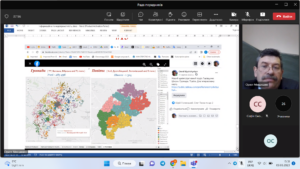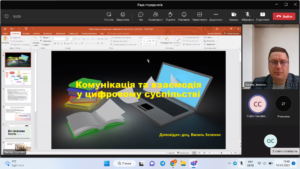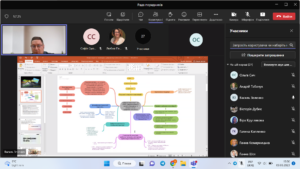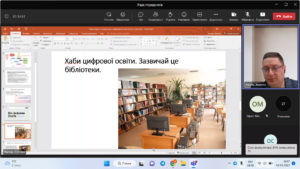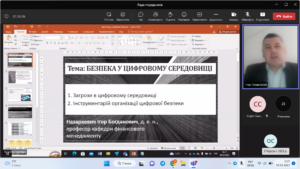Information literacy: implementation in institutions of higher education
In today’s conditions, information is an important resource for socio-economic development and scientific and technological progress; the main resource of education and mental activity; a key resource for the formation of education; a factor that allows citizens to achieve better results in scientific activity, in the field of health, in work; an important element of creativity and innovation. However, information alone does not make a person information literate. Being information literate means understanding the demand for information, being able to find it, evaluate it and effectively use it to solve various problems in one’s life.
On March 9, 2023, the advisers of the academic groups of the Faculty of Finance and Business Management had the opportunity to consider not only general provisions, but also specific examples of the introduction of elements of information literacy into the educational space of Ukraine.
Informative and informative report of the associate professor of the department of digital economy and business analytics Orest Myshchyshyn “Information and media literacy. Ability to work with data. Myths and reality” concerned the problem of recognizing reliable information in streams of manipulative data. The report demonstrates an example of launching a visual info drive and turning it into a part of an informational and psychological special operation. The advantages of visual presentation of data, critical approaches to the assessment of manipulative information are given, and the factors affecting false perception of information are indicated.
Vasyl Zelenko, associate professor of the department of economics and public administration, gave a speech on the topic: “Communication and interaction in the digital society.” It was noted that more than 50% of Ukrainians have below-average digital skills. The lack of knowledge in the field of digital literacy has a negative effect on the citizens themselves, because they often become victims of cyber criminals and Russian cyber aggression. Thus, in order to improve communication at all levels of management, education and other spheres of the Ukrainian state, the improvement of digital literacy among its citizens should be actively promoted. There are six areas of digital literacy: computer literacy; information literacy and the ability to work with large data sets; creation of digital content; communication and interaction in the digital society; security; solving any problems in the digital society and how we can continue to learn something new every day.
Professor of the Department of Financial Management Ihor Nazarkevych gave a speech “Security in the digital environment”. The presented report highlighted the issue of identifying threats in the digital environment, as well as considered the tools of digital security organization both at the level of an educational institution and at the level of an individual user. During the report, the main areas of individual cyber hygiene and the necessary measures to minimize cyber risks were discussed.
Considering the fact that students are the most active, but at the same time, the most vulnerable group among all Internet users, it is important for teachers to teach young people the effective and media-literate use of information flows, to encourage conscious attitude to information, to analyze it before consuming or distributing it.
And let’s remember: “information literate people are people who have learned to learn.”



